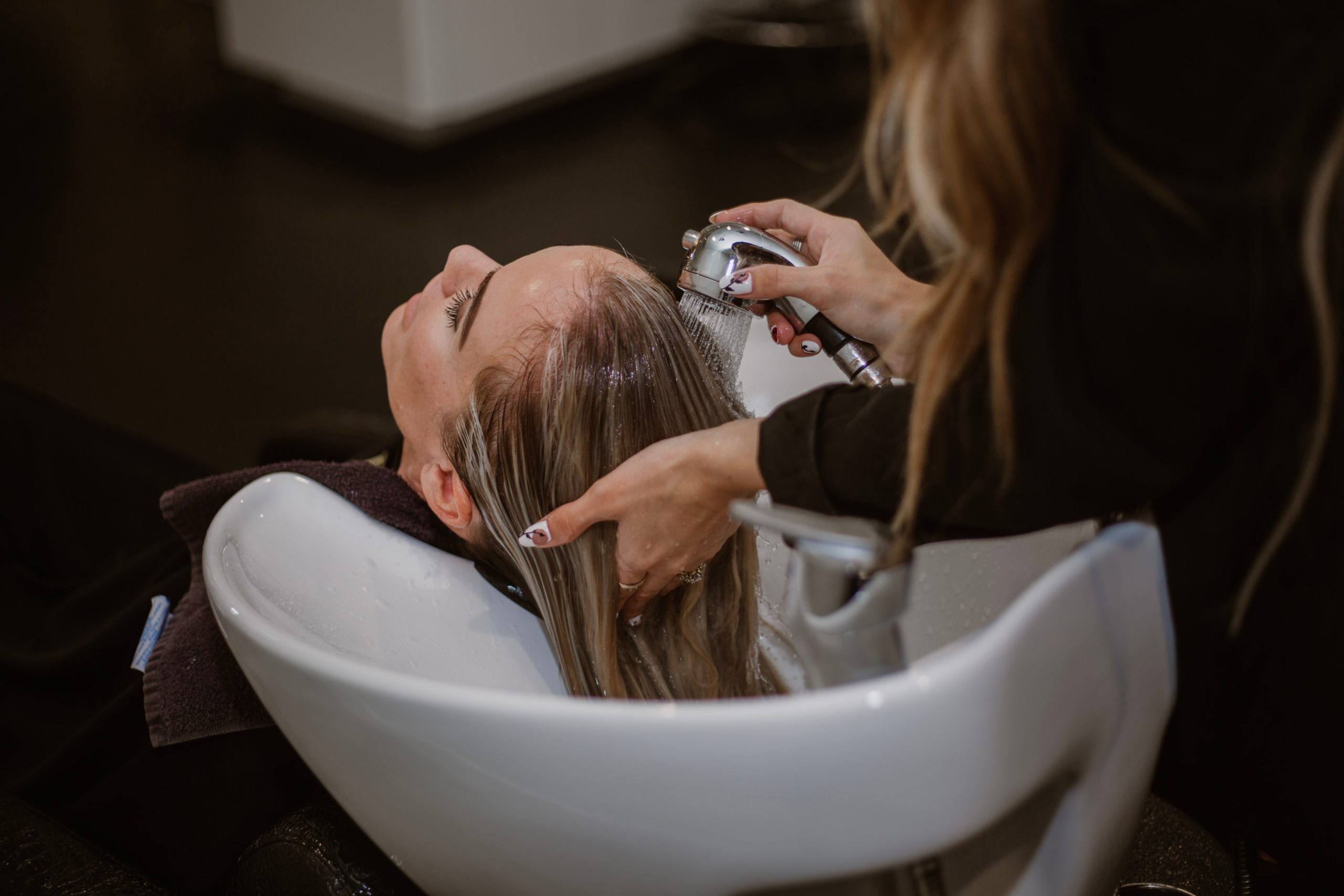If you have curly, coarse, dry, or thick hair, co-washing is definitely an excellent option for you. These hair types need more moisture, and the scalp’s oils are less likely to reach and condition the ends – where it is most required.
Finer and straighter hair, on the other hand, tends to seem oilier sooner and requires more frequent washing.
What is Co-Washing?
Co-washing is the process of washing your hair with just conditioner. It’s also referred to as conditioner-only washing and no-poo washing (as in no shampoo). If you have oily, mixed-textured, curly, or excessively dry hair, your hair care regimen may benefit from it.
It’s critical to understand that co-washing is more than simply skipping your shampoo and applying conditioner as usual. It’s about applying conditioner instead of hair shampoo, which includes your scalp.
Shampoo vs. Co-wash
Many shampoos include sulfates, which are detergents that completely clean your hair. Sulfates, on the other hand, may take natural oils and moisture from your hair. This causes your hair to become drier and more prone to breaking.
If you use a co-washing routine instead of shampoo, your hair may be more likely to retain its natural moisture levels, helping it to grow healthier.
However, there are certain factors to keep in mind, and you may want to think about striking a good balance between the two.
Many individuals report having softer hair after co-washing their hair, but the ‘benefits’ are generally fleeting, with the practice causing a slew of hair and scalp problems.
As a result, it is important to wash your hair every 7 to 10 days with a moderate sulfate-free shampoo.
If you enjoy how your hair feels after co-washing, you may alternate between co-washing and shampooing to ensure that your scalp is cleaned.
Shampooing cleans what co-washing cannot, including:
- Sweat
- Skin cells that have died
- Sebum
- Haircare products
- Dirt
- Dust
- Pollutants in the atmosphere
How Co-Washing Works
If you’re willing to give it a go, you’ll need to select the best conditioner for your hair type. Regardless of hair type, the first step is to ensure that your conditioner does not contain silicones. Silicones may generate buildup that covers your hair, resulting in dull, lifeless hair.
You should co-wash your hair every time you would usually wash it. You may need to shampoo your hair every day if you have an oily scalp.
Pros of Co-Washing
1. Helps Hair Retain Moisture
This approach will help hair in retaining moisture. Co-washing won’t strip hair of its natural oils, as most shampoos do. Your hair will feel silky and hydrated after conditioning.
2. Curls with Definition
Co-washing was one way that helped my curls stand out. Your curls will be perfectly defined after applying a generous quantity of product to your hair and washing it off.
3. Hair is Manageable
Detangling may be difficult, particularly with dry hair. This procedure may be made easy by co-washing. Detangling may be made easier by using the conditioner.
After detangling, your hair will be so manageable that the comb will slide through it. You may style your hair whatever you like now that you’ve detangled it. Whether it’s a twist out, wash and go, or braid out, your fingers will thank you for saving them time by detangling with conditioner.
Cons of Co-Washing
1. Left Over Residue
Unfortunately, this occurs rather often with co-washing. Shampoos work as a reset button for your scalp, removing any build-up and so on. Your hair will not be completely clean if you do not use shampoo.
2. Over-Moisturing
If your hair is already greasy, limit your co-washing to a couple of times per week. Over-moisturization might result in damage and breakage.
3. Requires A Lot of Maintenance
If you prefer a low-maintenance lifestyle, co-washing may not be for you. Because you are not shampooing, you must wash your hair more regularly while using the co-washing technique in order to have a clean, dirt-free scalp.
Conclusion
This conditioning wash is at the forefront of the natural hair trend and is supposed to work well on kinky and curly textures by sealing in the scalp’s natural oils. Of course, although some swear by this practice, others scorn it, equating co-washing to washing soiled clothing in fabric softener.
However, like with any procedure, there are a number of advantages and disadvantages that we should all be aware of, which is a wonderful indication as to whether a certain hair care routine would be useful for your mane or not.



